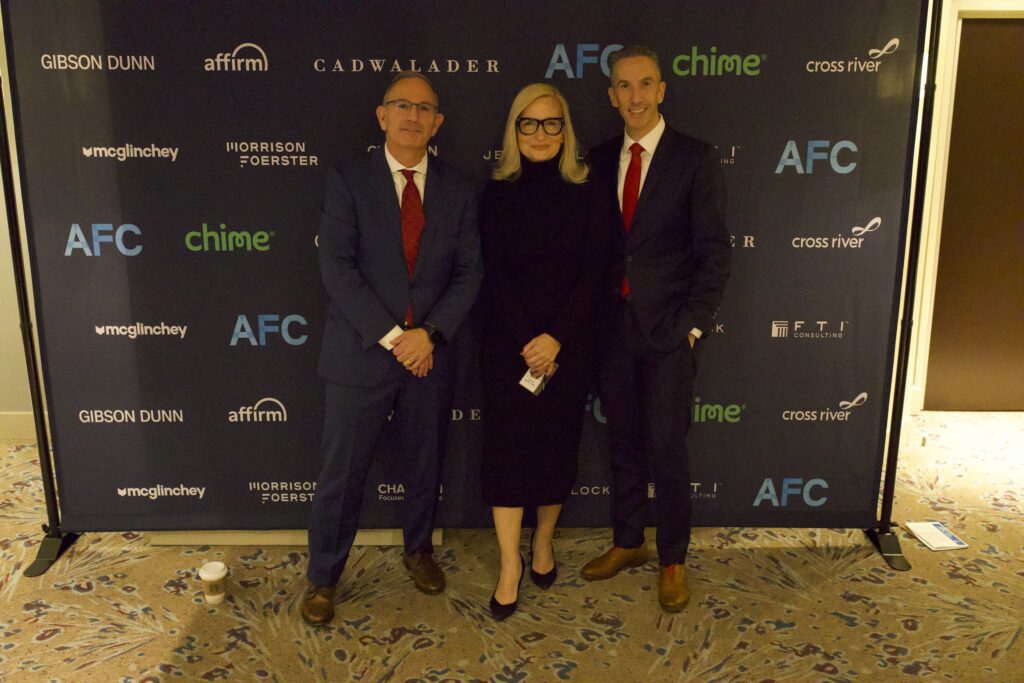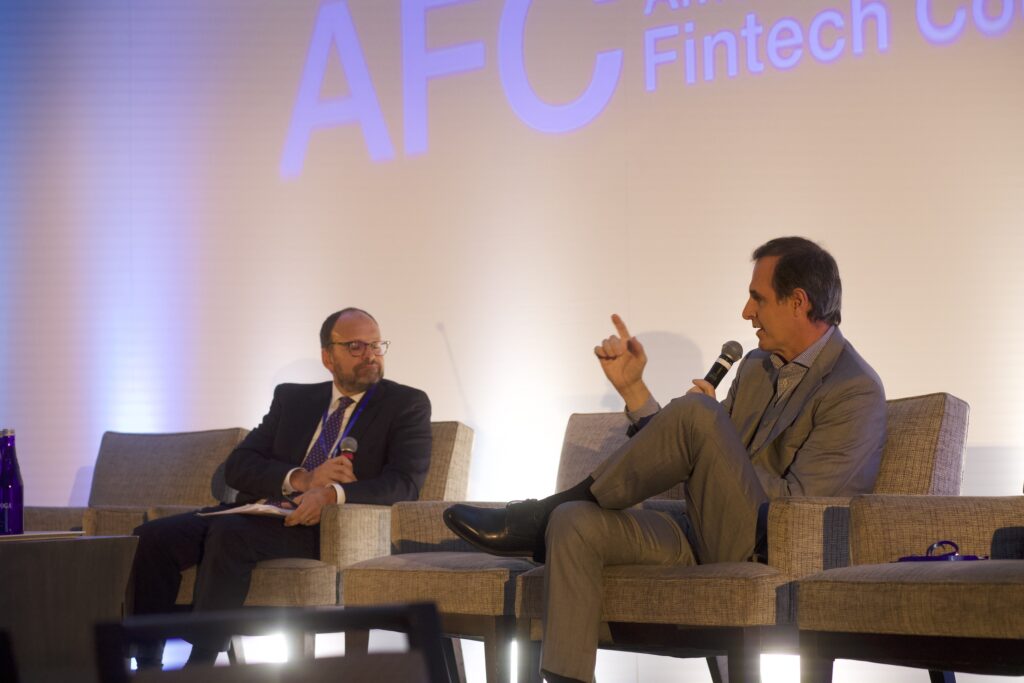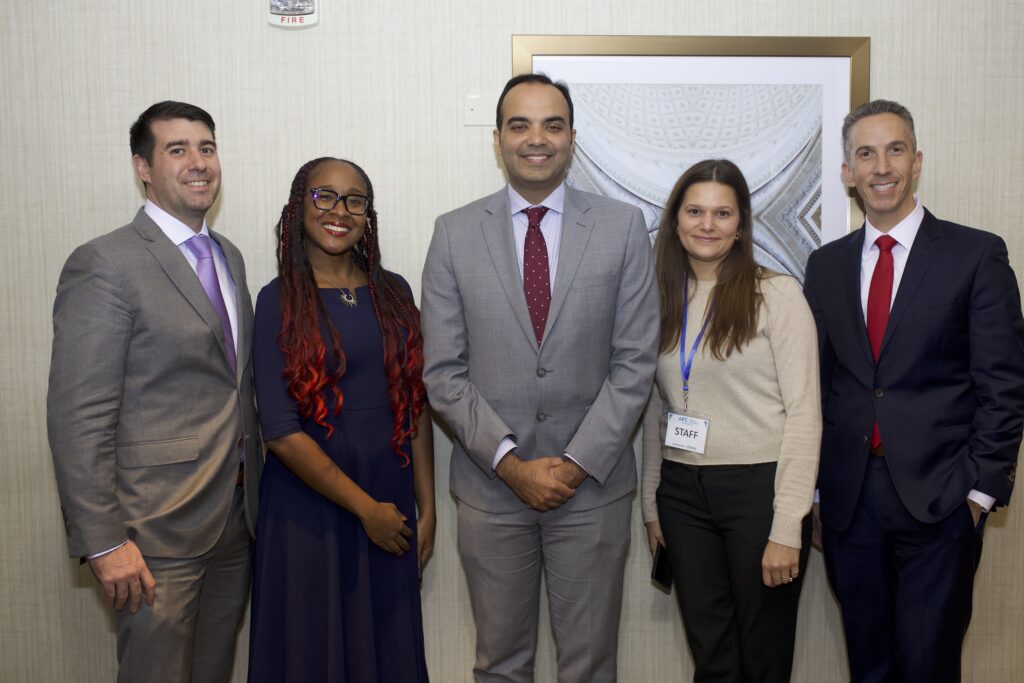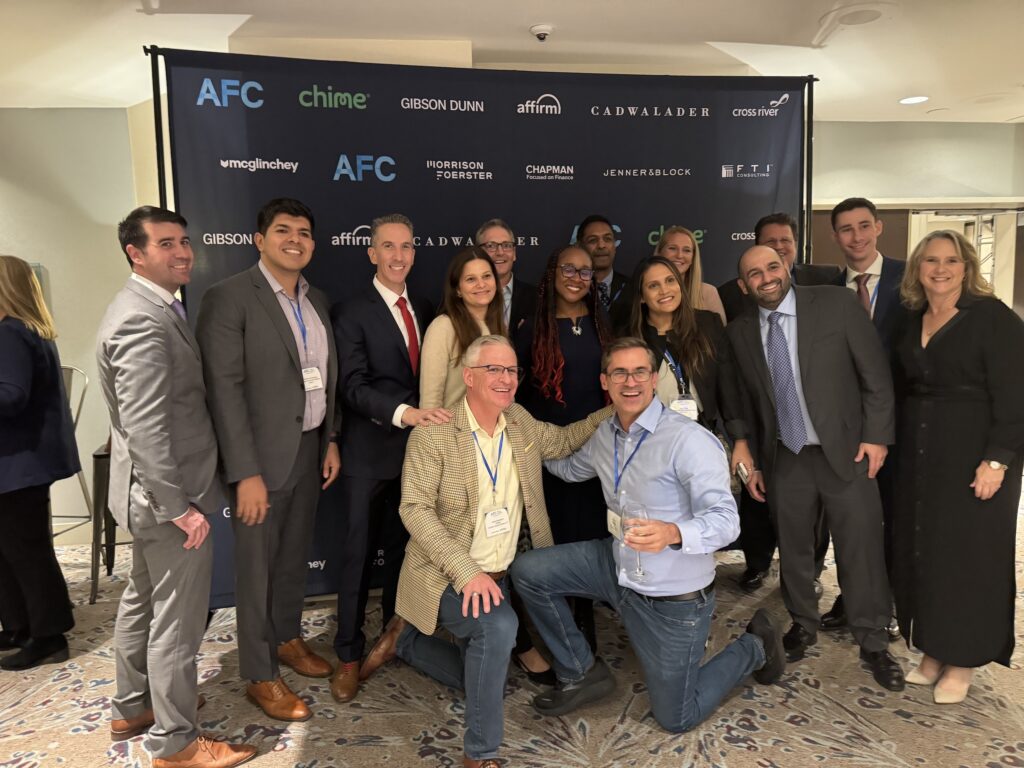
[ad_1]
Coverage leaders within the fintech house gathered in Washington DC yesterday for the seventh annual American Fintech Council Coverage Summit. It was a full day of studying and networking that offered an actual sense of the place the fintech business is at proper now. The tone was not overly optimistic or pessimistic. As an alternative, there was a sequence of no-nonsense, no-hype conversations about what’s most essential in relation to fintech coverage points.
I’m going to hit on a number of the agenda highlights on this article, specializing in the keynote periods which have been all glorious.
The primary keynote of the day was Jelena McWilliams, former Chairman of the FDIC and now a managing associate at Cravath, Swaine & Moore LLP. She began off by saying that Banking-as-a-Service is right here to remain, regardless of a few of its present challenges however fintechs have to navigate compliance points higher. Banks have the final word duty for this but when the financial institution can’t simply clarify what the fintech is doing to regulators that may have severe penalties.
She talked concerning the banking disaster from earlier this 12 months and whereas she didn’t disagree with the motion taken, having limitless deposit insurance coverage can be a really costly proposition for banks. She floated the thought of various insurance coverage protection on particular accounts, comparable to payroll accounts, however regardless banks with a excessive share of uninsured deposits have to handle their threat in a different way. Whereas she didn’t touch upon the present scandal on the FDIC she did say that the company has turn into politicized for the primary time in its 89-year historical past and not has full independence from the manager department.

Earned Wage Entry (EWA) is likely one of the hottest niches in fintech proper now, so we heard from the CEO and founding father of Earnin, Ram Palaniappan, one of many main gamers within the house. He talked concerning the two million people who Earnin has helped achieve early entry to their wages with the foremost use circumstances being lease, fuel and groceries. The attention-grabbing level he made is that when an worker begins utilizing the Earnin system their wages go up. That is most likely as a result of the app tracks their earnings in actual time, so that they have way more consciousness of their wages and usually tend to tackle further work. Whereas Ram applauds a number of the states which have taken the lead in making a regulatory framework for EWA he mentioned we want nationwide laws so as to create a unified system for customers.
Congressman Mike Flood (R-NE) took time away from a busy week on Capitol Hill to supply his perspective on a wide range of coverage points impacting fintech. Earlier than coming to Congress he frolicked within the Nebraska legislature and helped champion their Monetary Innovation Act which approved state chartered banks to custody crypto. He clearly understands crypto and is obsessed with monetary innovation which is why he needed to be on the Home Monetary Providers Committee (he’s additionally on the Digital Property, Monetary Know-how and Inclusion subcommittee).
He talked concerning the Monetary Innovation and Know-how for the twenty first Century Act (or FIT Act) which has been referred to as “probably the most complete crypto regulation ever voted on by Congress”. It’s a bipartisan invoice that Congressman Flood thinks can be handed by the Home however they must work exhausting to get it by way of the Senate. He lambasted the SEC for wanting any financial institution that custodies digital belongings to incorporate it on their stability sheet. He identified that BNY Mellon custodies over $17 trillion in conventional belongings, and it’s not required to report this on their stability sheet and the identical ought to be true for digital belongings.

Renaud Laplanche, the CEO and Co-Founding father of Improve, one of many unique fintech entrepreneurs, talked about a number of the classes realized from his a few years fintech. He pushed again on the notion that fintechs ought to turn into banks, arguing that the operational and capital necessities are difficult and that fintechs have the potential to be way more nimble and modern. He’s completely happy to associate with banks as a substitute of looking for a banking license.
Renaud teased a brand new product that’s launching quickly, a secured bank card with some distinctive options. When requested what he wish to see on the regulatory entrance he merely mentioned: stability. That’s the greatest you’ll be able to hope for proper now. He did point out the CFPB has been an excellent associate for fintech offering readability and transparency on their regulatory goals.
Mark Gould’s title is formally the chief funds govt for Federal Reserve Monetary Providers however he’s extra broadly often known as the pinnacle of FedNow, the Fed’s new instantaneous fee service that launched in July. He gave an replace on the rollout of FedNow. After having launched with 30 banks there at the moment are greater than 200 on the platform at the moment. He talked about how they intentionally segregated the workforce engaged on FedNow so they may suppose and act extra like a startup.
He acknowledged that so as to scale FedNow quickly they wanted to allow the business. He identified it’s not a zero-sum recreation in instantaneous funds and that they want RTP to achieve success as effectively. The Fed didn’t launch a totally featured system proper out of the field and that was deliberate. They needed to get FedNow into the market after which obtain suggestions from their prospects. So far as what’s coming, he mentioned they’re centered on the rollout proper now and that new options can be forthcoming in time however the precedence proper now’s to achieve extra scale.

The final keynote speaker of the day featured a standing-room-only crowd for CFPB Director Rohit Chopra. The director needs to ensure our monetary system is truthful, clear and aggressive. He’s on the lookout for innovation that may create actual change not simply benefiting from regulatory loopholes. He reiterated their pondering behind the brand new open banking guidelines and inspired everybody to put their feedback.
For open banking to speed up and succeed within the US corporations must be clear with information and supply actual worth. You possibly can’t simply provide a mortgage as a pretext for gathering information. We want wise requirements for open banking information, rules can’t be so complicated that they don’t stand the take a look at of time. He additionally mentioned that open banking may very well be crippled if there’s one foremost participant that has all the facility, we want a aggressive market right here. In a wide-ranging Q&A he commented on chatbots (don’t deploy them too quick), AI in underwriting (want to clarify opposed motion notices) and he needs to take away the bias in relation to dwelling value determinations. He ended with some commentary on small enterprise, saying that open banking ideas are simply as relevant there.
After all, there have been additionally a lot of fascinating panels all through the day masking subjects comparable to banking-as-a-service, the state regulatory push, rising fintech markets, third-party threat administration, AI and different information, understanding novel actions and AI and regulatory innovation. There have been a lot of intimate roundtables on a wide range of subjects operating all through the day in addition to a sold-out women-in-fintech luncheon.
The AFC additionally made three bulletins in the course of the day. They welcomed two model new members, Strategic Danger Associates and Winnow. In addition they introduced a collaboration with Alloy Labs to develop and promote accountable innovation, business greatest practices, and a sound regulatory framework for the way forward for finance.
It was an action-packed day with an enthusiastic crowd who, judging by the feedback I acquired at drinks afterward, have been very proud of what they realized and the individuals they met.
The AFC employed Fintech Nexus to assist produce this occasion so our workforce labored carefully with the AFC on all facets of the occasion. Kudos should go to AFC CEO Phil Goldfeder and his workforce who labored tirelessly within the days and weeks main as much as yesterday to make sure a profitable occasion was loved by all AFC members and different attendees.

[ad_2]